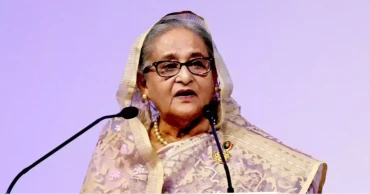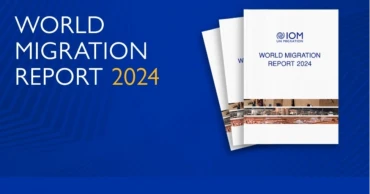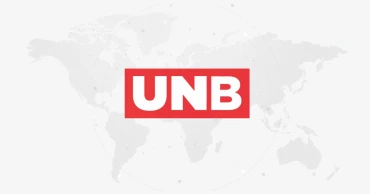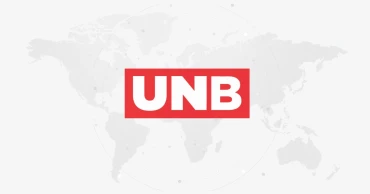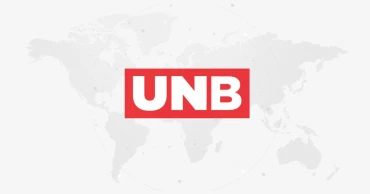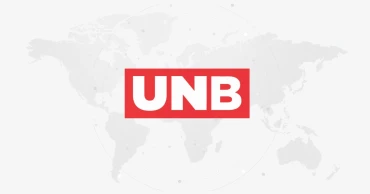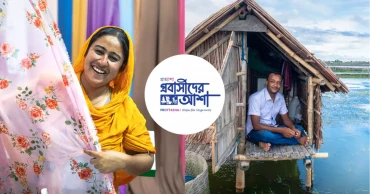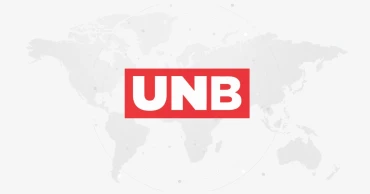iom
Fire risks still high in Rohingya camps: IOM
The International Organization for Migration (IOM) has said it continues to work closely with sector partners to scale up assistance and address urgent and evolving needs, stressing that fire risks remain high in the Rohingya camps.
While immediate assistance continues, the latest incident underscores the persistent fire risks facing refugee communities in Cox’s Bazar, which hosts more than one million Rohingya refugees, it said.
The fire risks remain high, particularly during the dry season, due to the dense layout of the camps and the use of highly flammable materials in temporary shelters, IOM said.
It launched an emergency response following a large fire in a Rohingya refugee camp in Cox’s Bazar early Tuesday morning.
Read more: Canada reaffirms commitment to dignity and justice for Rohingya
Relief efforts are being carried out in close coordination with the Government of Bangladesh and humanitarian partners to ensure timely and appropriate assistance to affected families. “When fires strike in overcrowded camp settings, the impact extends far beyond damaged infrastructure,” said Lance Bonneau, IOM Chief of Mission in Bangladesh.
“Families lose shelter, essential belongings, and access to basic services, increasing immediate protection risks. Our response is guided by a clear responsibility to protect lives, uphold dignity and ensure that those affected receive assistance quickly and safely, so families can begin to regain a sense of normalcy.”
The fire affected more than 2,000 refugees, causing extensive damage to shelters and camp-based facilities. No fatalities or major injuries have been reported.
More than 400 shelters were damaged and camp infrastructure was severely impacted, including over 160 water, sanitation and hygiene (WASH) facilities such as water points and latrines, as well as 11 learning centres and two mosques.
Beyond the destruction of shelters, the fire also destabilized the hillside terrain on which much of the camp is constructed, damaging drainage networks and public infrastructure, and increasing risks related to access and erosion.
After the fire was contained, IOM deployed health teams and ambulances to support those with minor injuries and worked with partners to rapidly assess damage and immediate needs.
Building on these assessments, IOM and its partners rapidly deployed specialized teams in shelter, WASH, and protection to support affected families. Within 24 hours of the incident, IOM’s camp management team, together with refugee volunteers, cleared debris from the fire-affected areas to restore safe access for emergency assistance and essential services.
Over 49.5 lakh Bangladeshis internally displaced by natural disasters: IOM
In coordination with the World Food Programme (WFP), emergency food assistance was provided, while affected households received emergency shelter assistance, blankets, floor mats, mosquito nets, and portable solar lights.
Following previous devastating fires, including the March 2021 incident that displaced 45,000 people, IOM and humanitarian partners have continued to strengthen refugee-led emergency preparedness and response mechanisms to enable faster, safer, and more effective action when hazards occur.
1 month ago
145 undocumented Bangladeshis return from Libya
A group of 145 undocumented Bangladeshi nationals, who wanted to voluntarily return home from Libya, arrived in Dhaka early Thursday.
They arrived by a chartered flight of Buraq Air (UZ0222) at 5:30 am following a joint effort by the Ministry of Foreign Affairs, Bangladesh Embassy in Tripoli, Libya and the International Organization for Migration (IOM).
Most of them entered Libya facilitated by human traffickers, with the intention of illegally traveling to Europe via the sea route. They were victims of kidnapping and torture at different times in Libya, according to the foreign ministry.
The government urged everyone to remain aware of this so that no one goes to Libya illegally.
After arrival, the returnees were received by ministry officials and the International Organization for Migration at Hazrat Shahjalal International Airport.
IOM provided each repatriated person from Libya with Tk 6000, and some food items.
23 bodies washed up on Libya's shores believed to be of Bangladeshis: Ambassador
They will be provided treatment and temporary accommodation if necessary.
The Ministry of Foreign Affairs, Bangladesh Embassy in Tripoli, and the International Organization for Migration (IOM) are working together to arrange for the safe repatriation of Bangladeshi citizens detained in various detention centers in Libya.
Meanwhile, several batches of undocumented Bangladeshis returned home from the country.
1 year ago
Need to find new partners to raise more int’l fund for Rohingyas: PM Hasina to IOM
Prime Minister Sheikh Hasina on Tuesday (May 07, 2024) urged the International Organization for Migration (IOM) to search for new partners to increase the international fund for Rohingyas who have taken shelter in Bangladesh to escape persecution in Myanmar.
“Since the the assistance for Rohingyas has declined, the IOM should look for new partners to raise more funds for them,” she said.
The premier made this call when IOM Director General Amy Pope paid a courtesy call on her at the latter’s official residence Ganabhaban.
PM’s Speechwriter Md Nazrul Islam briefed reporters after the meeting.
PM opens newly constructed AFIP Bhaban, Sena Prangan Bhaban in Dhaka Cantonment
During the meeting, they discussed the UN joint response plan for the Rohingya humanitarian crisis as the international fund for supporting Rohingya refugees has significantly declined.
Hasina also asked IOM to help relocate more Rohingyas to Bhashanchar (island) from Cox’s Bazar camps as accommodation and livelihood facilities are there including self-employment, education for their children, healthcare services and infrastructures for some 100,000 people in Bhashanchar.
Some 30,000-35,000 Rohingyas have already relocated to Bhashanchar from Cox’s Bazar camps.
The IOM Director General who visited Cox’s Bazar Rohingya camps on Monday raised the security issue in the camps.
In this context, the premier said now conflict continues in Myanmar and Rohingya people are also divided in different groups and sub-groups in the overcrowded camps in Cox’s Bazar. So, they are engaged in internal conflicts, she added.
Stay away from upazila polls: PM Hasina tells ministers and AL MPs
Besides, the Rohingya people have outnumbered the host community in Cox’s Bazar. So, there are,conflicts for limited resources there, she said.
She, however, said adequate number of law enforcement agencies have been deployed to maintain the law and order in the Rohingya camps areas.
Talking about migration, IOM Director General Amy Pope stressed the need for imparting proper training to migrants on demand-driven skills, language and culture of the destination countries.
In response, the prime minister said her government has attached topmost priority to imparting training on trade-based skills and languages.
She said her government has taken up many programmes including a bank loan scheme for the welfare of expatriates.
“Both source and host countries should protect the interest of migrants as they contribute to both economies,” said Hasina.
Noting that migration is a natural process, she said if poverty reduces, the intensity of migrants would decline.
In this time, she mentioned the poverty rate has declined sharply in Bangladesh in the last 15 years and now the extreme poverty rate is only 5.6 percent here.
Talking about the internal migration, PM Hasina said people also migrated internally for the climate change as Bangladesh is one of the most vulnerable countries for the climate change impacts. The people are being migrated internally for river erosion, flood and cyclone, she said.
She said her government gives houses to climate-induced refugees under the Ashrayan project. More than 4,000 climate refugees were already given abodes alone at Khurushkul in Cox's Bazar by construction of multi-storied buildings there, she cited.
The PM said her government also gives the homeless people the climate-resilient houses on the coastal areas and floating houses in flood-prone areas free of cost.
Principal Secretary M Tofazzel Hossain Miah and Expatriates’ Welfare and Overseas Employment Secretary Md Ruhul Amin were present.
1 year ago
Migrant remittances now outpace foreign investments in developing countries: IOM report
International migration remains a driver of human development and economic growth, highlighted by a more than 650 percent increase in international remittances from 2000 to 2022, rising from USD 128 billion to USD 831 billion, according to a new global report released today.
The growth continued despite predictions from many analysts that remittances would decrease substantially because of COVID-19.
The International Organization for Migration (IOM) launched the World Migration Report 2024, which reveals significant shifts in global migration patterns, including a record number of displaced people and a major increase in international remittances.
IOM Director General Amy Pope formally released the report in Bangladesh, which stands at the "forefront of migration" challenges, including emigration, immigration and displacement.
"We hope the report inspires collaborative efforts to harness the potential of migration as a driver for human development and global prosperity," DG Pope said.
By choosing Dhaka as the report's launch site, IOM not only highlights the country's efforts in supporting vulnerable migrants and fostering pathways for regular migration but also recognizes Bangladesh's important role in shaping global migration discourse and policy, IOM said.
As a Global Compact for Safe, Orderly, and Regular Migration Champion country, Bangladesh has demonstrated a strong commitment to addressing migration issues and implementing policies that safeguard migrants' rights, it said.
Read more: Global actors pledge to collaborate on transformation of Bangladesh agriculture
This proactive engagement aligns with IOM's strategic objectives, making Bangladesh an ideal location to launch the 2024 World Migration Report.
Foreign Minister Dr Hasan Mahmud said as one of the GCM champion countries, Bangladesh will not only continue to act upon the pledges it has made for its domestic context but would also take up emerging issues and challenges pertaining to migration and development for informed deliberations at the international level.
“The World Migration Report 2024 helps demystify the complexity of human mobility through evidence-based data and analysis,” Pope said at the launch.
“In a world grappling with uncertainty, understanding migration dynamics is essential for informed decision-making and effective policy responses, and the World Migration Report advances this understanding by shedding light on longstanding trends and emerging challenges.”
Of that 831 billion in remittances, 647 billion were sent by migrants to low and middle-income countries. These remittances can constitute a significant portion of those countries' GDPs, and globally, these remittances now surpass foreign direct investment in those countries.
Highlighting key findings, the report reveals that while international migration continues to drive human development, challenges persist.
Read more: UK Minister for Indo-Pacific arrives Tuesday on two-day visit
With an estimated 281 million international migrants worldwide, the number of displaced individuals due to conflict, violence, disaster, and other reasons has surged to the highest levels in modern-day records, reaching 117 million, underscoring the urgency of addressing displacement crises.
Migration, an intrinsic part of human history, is often overshadowed by sensationalized narratives.
However, the reality is far more nuanced than what captures headlines.
Most migration is regular, safe, and regionally focused, directly linked to opportunities and livelihoods.
Yet, misinformation and politicization have clouded public discourse, necessitating a clear and accurate portrayal of migration dynamics.
IOM’s World Migration Report, with its innovative digital tools and comprehensive analysis, aims to help dispel myths, provide critical insights, and inspire meaningful action in addressing the challenges and opportunities of human mobility.
This launch is part of IOM Director General’s first three-day visit to Bangladesh.
Chief of IOM Mission in Bangladesh Abdusattor Esoev, former Foreign Secretary Shahidul Haque, senior government officials and diplomats stationed in Dhaka were present at the report launching ceremony.
Read more: UK Minister for Indo-Pacific in Dhaka to ‘strengthen’ economic, security, migration partnership with Bangladesh
1 year ago
Over 50% of trafficked children victims of domestic trafficking: IOM-Harvard Report
A report conducted by International Organization for Migration (IOM) and François-Xavier Bagnoud Center for Health and Human Rights at Harvard University (FXB) revealed that more than half of child trafficking victims are trafficked within their own countries.
The report also found that in cases of international trafficking, children are mostly trafficked to neighbouring, wealthier countries.
Close to half of the child victims of trafficking were being trafficked for forced labour (mainly boys), in a wide range of industries, such as domestic work, begging and agriculture. Sexual exploitation, including through prostitution, pornography, and sexual servitude, is also prominent — affecting 20 percent of trafficked children, predominantly girls.
According to the report titled ‘From Evidence to Action: Twenty Years of IOM Child Trafficking Data to Inform Policy and Programming’, child victims trafficked for sexual exploitation were commonly trafficked internationally, while those trafficked for forced labour were more likely to be trafficked domestically. Involvement of family and friends in their recruitment, is a prominent trend with more than half of child victims experiencing this.
Read: US condemns murder of labour leader Shahidul Islam, calls on authorities to hold perpetrators accountable
Irina Todorova, Head of IOM’s Core Protection Unit said, “The report shows that child trafficking is a multifaceted and complex phenomenon that continues to spread and evolve within and across borders. No age range, no gender, and no nationality is immune to child trafficking; it is a truly global phenomenon.”
For instance, boys were almost twice as likely to be trafficked as children than girls and had 39 percent less likelihood of being trafficked internationally than domestically, as compared to girls, it said.
The report further stated that victims with little or no education were more than 20 times more likely to be trafficked than victims who had attended high school while children from low-income countries were five times more likely to be trafficked as a child (rather than as an adult) when compared to victims from high-income countries.
Read: Better flood management: China offers assistance for dredging rivers in Bangladesh
2 years ago
Japan provides $500,000 to Cyclone-affected Rohingyas, host communities through IOM
The government of Japan has decided to provide the International Organization for Migration (IOM) with USD 0.5 million assistance in response to the super Cyclone Mocha which made landfall on 14 May and hit Rohingya and host communities in Cox’s Bazar.
The heavy rains caused damage in both Myanmar and Bangladesh.
In Bangladesh, significant damage was observed to camps hosting approximately 930,000 refugees.
A total of 4 districts, 26 Upazilas (sub-districts), 99 unions, and 429,337 Bangladeshi nationals were affected by the cyclone, according to the Ministry of Disaster Management and Relief.
The intense and heavy wind and rainfall destroyed or damaged shelters, water points, latrines, culverts, bridges, and other key community infrastructure.
Also Read: Japan, IOM sign $5.7 million assistance to Rohingyas, host communities in Bangladesh
This emergency grant is to provide critical WASH services to Rohingya, and host communities affected by the cyclone Mocha through IOM.
Activities will include repairing and installation of latrines, provision of hygiene packages to those affected populations and hygiene awareness/promotions activities.
“I feel empathy for those who suffer from disasters such as cyclones. Japan is also prone to natural disasters and is committed to supporting the response and the Build Back Better after Cyclone Mocha for both Rohingya and host communities," said Ambassador of Japan to Bangladesh Iwama Kiminori on Tuesday.
Also Read: Japan wants to understand what’s happening in Bangladesh and where it’s headed, BNP says as ambassador meets Fakhrul
He hoped that the WASH services supported by Japan will contribute to maintaining the hygiene environment and will prevent water-borne diseases which might outbreak after the cyclones.
Chief of Mission of IOM Bangladesh Abdusattor Esoev said they are grateful for the generous support of the government of Japan in response to the devastating impact of Cyclone Mocha on the Rohingya refugees and host communities in Cox's Bazar.
Also Read: Will continue to work toward resolution of Rohingya issue: Japan
"Japan's commitment to supporting the response and the 'Build Back Better' approach demonstrates their empathy and dedication to those affected by disasters. Together with our partners, we will continue our efforts to provide essential assistance and support the recovery of the affected communities," said Abdusattor Esoev.
Since the beginning of the emergency in August 2017, Japan has been a steady supporter of the Rohingya refugee response in Bangladesh, contributing over USD $200 million to IOM and other UN agencies as well as NGOs in Bangladesh, including through this new funding.
2 years ago
Govt operating 4 chartered flights to evacuate remaining Bangladeshis from Sudan to Jeddah: Shahriar Alam
Bangladesh is operating four chartered flights from Sudan, at its own cost, to evacuate the remaining Bangladeshi citizens to Jeddah, Saudi Arabia.
Three of the chartered flights will be operated today (May 10, 2023), while the fourth will be operated tomorrow, State Minister for Foreign Affairs Md Shahriar Alam told reporters at the Ministry of Foreign Affairs on Wednesday.
He said the government has sent required financial support for providing food to Bangladeshis who are waiting in Sudan.
Also read: Govt to provide all possible financial assistance to returnees from Sudan: Minister
Once they reach Jeddah, they will fly back to Dhaka as soon as possible.
On Tuesday, 136 Bangladeshi nationals arrived at Hazrat Shahjalal International Airport in Dhaka.
They were supported by IOM with air tickets through its internal emergency assistance funding mechanisms to travel from Jeddah, Saudi Arabia to Dhaka, Bangladesh with the coordinated support from Biman Bangladesh Airlines.
Upon arrival the returnees were provided with meals and onward transportation allowance from the Wage Earners' Welfare Board (Tk 3,000) and IOM (Tk 2,000).
Read More: Sudan conflict: 136 Bangladeshi evacuees arrive in Dhaka
2 years ago
JRP 2023 launched: IOM in $125m appeal for Rohingyas, hosts
The International Organization for Migration (IOM) is asking for $125 million to support 1.4 million Rohingya refugees, host communities in need in Cox's Bazar as the response to the Rohingya refugee crisis drags on for a sixth year in 2023.Over 900,000 Rohingya refugees have temporarily sought shelter in Cox's Bazar since the 2017 influx, and the Bangladeshi government and the wider international community have supported them throughout.The Rohingyas must continue to receive ongoing help until they may freely return to Myanmar in a secure and dignified manner, IOM said on its website today.
Along with other humanitarian organisations, it has been providing lifesaving, protection and assistance services to the refugee community for the last six years.“The ongoing crises and disasters around the world should not make us forget the needs of Rohingya refugees and the response in Bangladesh,” said António Vitorino, IOM director general. “We earnestly urge the international community to step up their efforts to ensure the Rohingya refugees continue to receive the support they need.”The Joint Response Plan (JRP) for the Rohingya Humanitarian Crisis, which includes over 100 response players made up of UN agencies and NGOs, includes the IOM's appeal.
Under the JRP for 2023, which was launched today with the Government of Bangladesh, these humanitarian players are attempting to raise a total of more than $876 million.
In order to put that in context, we should note that the JRP for 2022 amounted to $881 million, and less than half that amount was disbursed. The expectation is that the 2023 response will be even worse.
The World Food Programme (WFP), another UN agency, has already been forced to cut food rations for camp residents by 17% from March 1, from $12 per head to $10 per person.Refugee protection is a top priority for IOM. It works with vulnerable people and at the community level to reduce the risks of gender-based violence and the physical, psychosocial, and social vulnerabilities of child and human trafficking in order to protect the most vulnerable, especially women and children who make up over 75% of the population.“Our priorities for 2023 include the continuation of providing life-saving assistance and protection of the Rohingya refugees and support for vulnerable host community members,” said Abdusattor Esoev, IOM Bangladesh chief of mission.“We call on the international community to contribute generously to our efforts to help these refugees and not forget the plight of the Rohingya in Bangladesh,” he added.
US, UK respond to JRP
Both the United States and the United Kingdom, both vital to the response, have in the last few hours released statements in response to the launch of the 2023 JRP.
While London kept its wallet closed, Washington announced a new, small amount it would be disbursing on top of earlier commitments. Both power centres however, seem to be converging on an interesting alternative course to deal with the issue.
That would seem to involve persuading the Bangladeshi hosts to be more accommodating of the Rohingyas, even outside the camps - for job opportunities, or to even support themselves.
The UK’s response was delivered in Geneva by Simon Manley, the country’s ambassador to the UN missions in that city.
He said the UK sees an urgent need to work pragmatically with the Government of Bangladesh, to find a sustainable way forward that “offers the Rohingya more self-reliance, and less dependence on humanitarian aid.”
The statement also sought to “achieve maximum effect with every pound, euro or dollar we spend.”
The US statement was delivered virtually by Assistant Secretary Julieta Valls Noyes. In it, she said the United States will contribute “nearly $26 million dollars in new humanitarian assistance for Rohingya refugees”.
This would be on top of an earlier commitment of $75 million towards JRP 2023, announced in January.
Noyes then called on Bangladesh “to reexamine its restrictions on allowing refugees to earn a living.”
“Restrictions on livelihoods deny Rohingya the ability to provide for themselves and the sense of purpose many of us get from our vocations,” the statement continued, falling in with the UK’s theme. “These restrictions prevent Rohingya from contributing to the communities that generously welcomed them and limit the chances of a sustainable, voluntary repatriation.”
Noyes ended by saying the United States would be “among the countries now welcoming Rohingya from Bangladesh.”
2 years ago
Photo exhibition 'Prottasha: Hope for Migrants' to be held in Dhaka Tuesday
The International Organization for Migration (IOM) will organize a photo exhibition titled “Prottasha: Hope for Migrants” on Tuesday to raise awareness and to persuade the masses about sustainable reintegration, safe migration and migration governance.
Storytelling is an effective tool to inform and make people aware of the issues of safe migration, sustainable reintegration, and migration governance.
The exhibition will bring together a range of migration-related stories to help us understand the complex experience and contextualize some of the opportunities and challenges of migration in Bangladesh.
read more: Swift return of irregular migrants to help promote legal migration: European Commissioner
It will also help understand migration and its complexities, said the IOM on Monday.
Besides, the stories will present the impact and results of the work on safe migration and sustainable reintegration of returning migrants under the Prottasha project.
The photo exhibition will remain open to all at Pan Pacific Sonargaon Hotel in Dhaka on Tuesday from 3pm to 7pm
In addition, an infotainment show featuring pot songs, song performances, short films, and quizzes will be organized during the event.
read more: Migrant workers’ rights: UN expert for monitoring recruitment process
The photo exhibition is being organized under the European Union funded ‘Bangladesh: Sustainable Reintegration and Improved Migration Governance (Prottasha) project.
Since 2017, IOM has implemented the project, under the guidance of the Government of Bangladesh and in partnership with BRAC.
3 years ago
Netherlands, IOM join hands to improve environment, strengthen resilience of Rohingyas, host communities in Cox’s Bazar
The Netherlands will provide USD 7.5 million to the International Organization for Migration (IOM) for a project aims to provide multi-sectoral support assistance for the Rohingya refugees and the host communities in Cox’s Bazar.
The Embassy of the Kingdom of the Netherlands in Dhaka and the IOM have signed an agreement for the implementation of ‘Restoring the Environment and Strengthening Resilience of Rohingya Refugees and Host Communities in Cox’s Bazar’ project.
An Exchange of Notes was signed by Chargé d’Affaires Thijs Woudstra, Deputy Ambassador of the Netherlands to Bangladesh, and Fathima Nusrath Ghazzali, Officer in Charge of IOM Bangladesh at the IOM Office in Dhaka on Monday.
Cox’s Bazar District, currently hosting nearly one million Rohingya refugees since 2017, is prone to natural disasters and climate change impacts. Refugees and host communities are vulnerable to landslides and floods, particularly during cyclones which can occur annually.
Read more: IOM unveils first 12 of 100 under-construction community clinics in Cox’s Bazar
The temporary and often weak shelter structures in which the refugees live further exacerbate not only the vulnerability of the refugees to natural disasters but also psychosocial stress.
For this reason, the project seeks to integrate mental health and psychosocial support (MHPSS) into the Disaster Risk Reduction (DRR) activities.
This integrated approach adopted by the Netherlands and IOM aims to build resilient communities and reduce negative mental health and psychosocial outcomes, and to increase the community’s capacity in DRR prevention and preparedness as well as their resilience to hazardous events.
It is envisioned that 196,463 people from refugee and host communities will benefit from the project, receiving assistance through the continued operation and maintenance of water, sanitation and hygiene (WASH) facilities, environmental rehabilitation activities and MHPSS (psychiatric consultations, counseling, case management).
Some 18,000 beneficiaries will receive lay-counseling by trained community volunteers.
At least 200 volunteers will be trained on Psychological First Aid (PFA), lay counseling, stress management and other MHPSS-related and residence-oriented topics.
At least 18 community support groups will be established, involving 180 community members.
The project will also benefit at least 30,000 refugee families (approximately 150,000 people) living in the Balukhali landslide and flood-prone areas (inside the camps) and 3,000 families from the Bangladeshi host communities (approximately 16,410 people) living in the area outside the refugee camps.
Read more: Bangladesh can’t & shouldn’t bear Rohingyas’ responsibility alone: IOM
“The Rohingya live in congested camps with limited opportunities and complex challenges. Host communities also face issues that increase their vulnerability, including strained resources, limited market access, limited employment opportunities, insufficient infrastructure, and recurring environmental shocks," said Ghazzali,
"With support from the Netherlands, IOM will provide life-saving support to Rohingya refugees and host communities, contributing to improved social harmony and human security. This will include providing essential services focusing on camp life; mental health; disaster risk reduction, and water, sanitation & hygiene,” she added.
Chargé d’Affaires Thijs Woudstra expressed hope that the support from the Government of the Netherlands will help to improve the living conditions of both Rohingya refugees and Bangladeshi communities and mitigate disaster risks.
“We particularly value the innovative angle this project takes in integrating MHPSS in DRR. Increasing community resilience and preparing the community to adequately respond to disasters is key to ensure a sustainable reduction of disaster risks for refugees and host communities in Cox’s Bazar.” the Deputy Ambassador said.
The project will be implemented in coordination with the government of Bangladesh and other relevant stakeholders.
3 years ago


